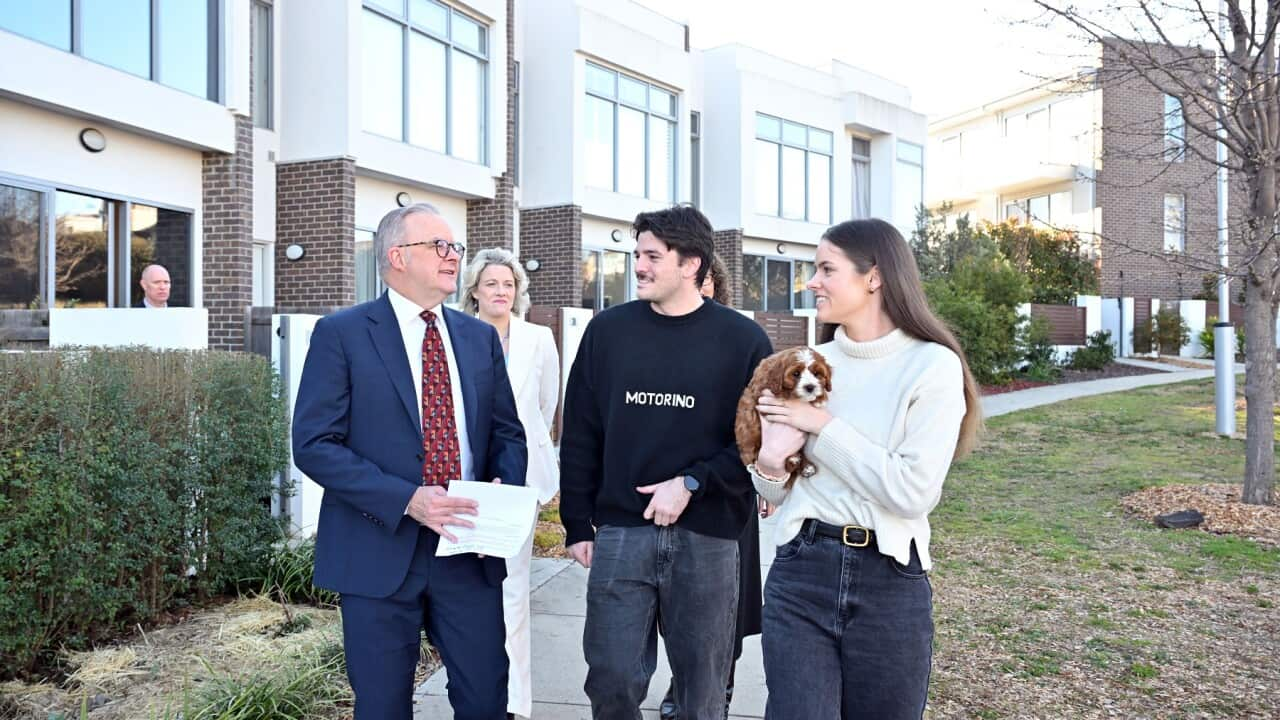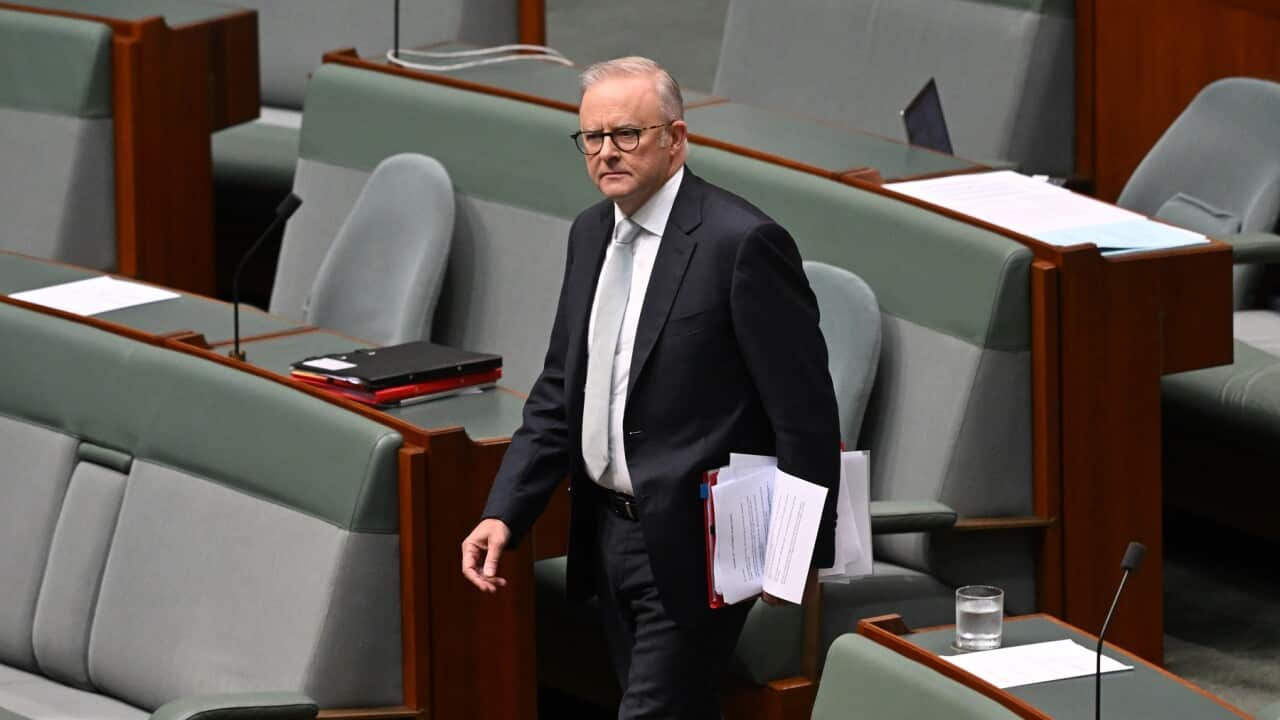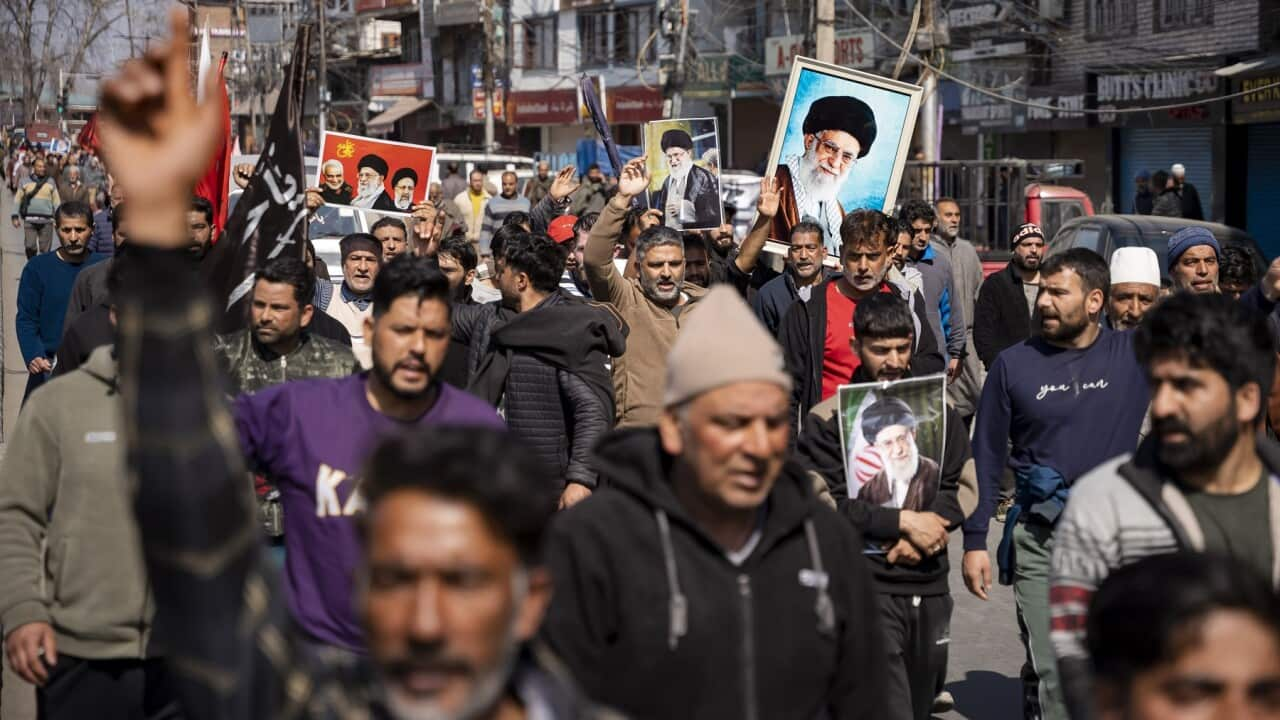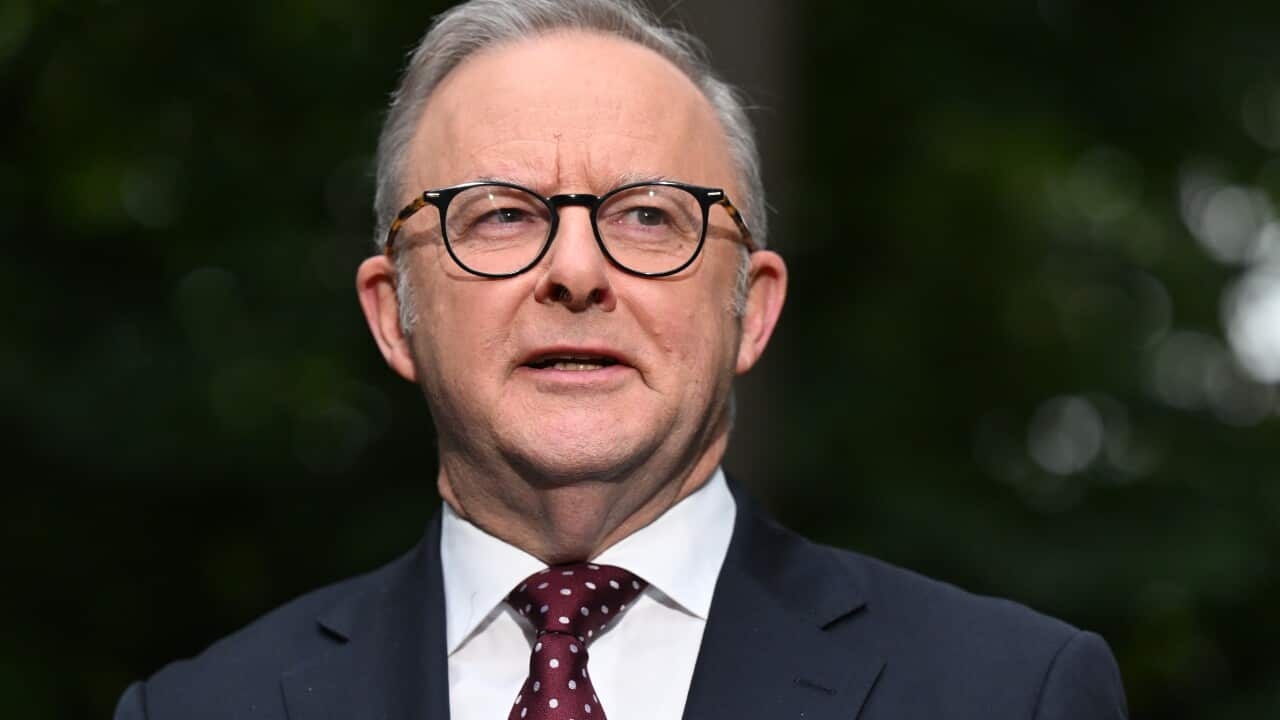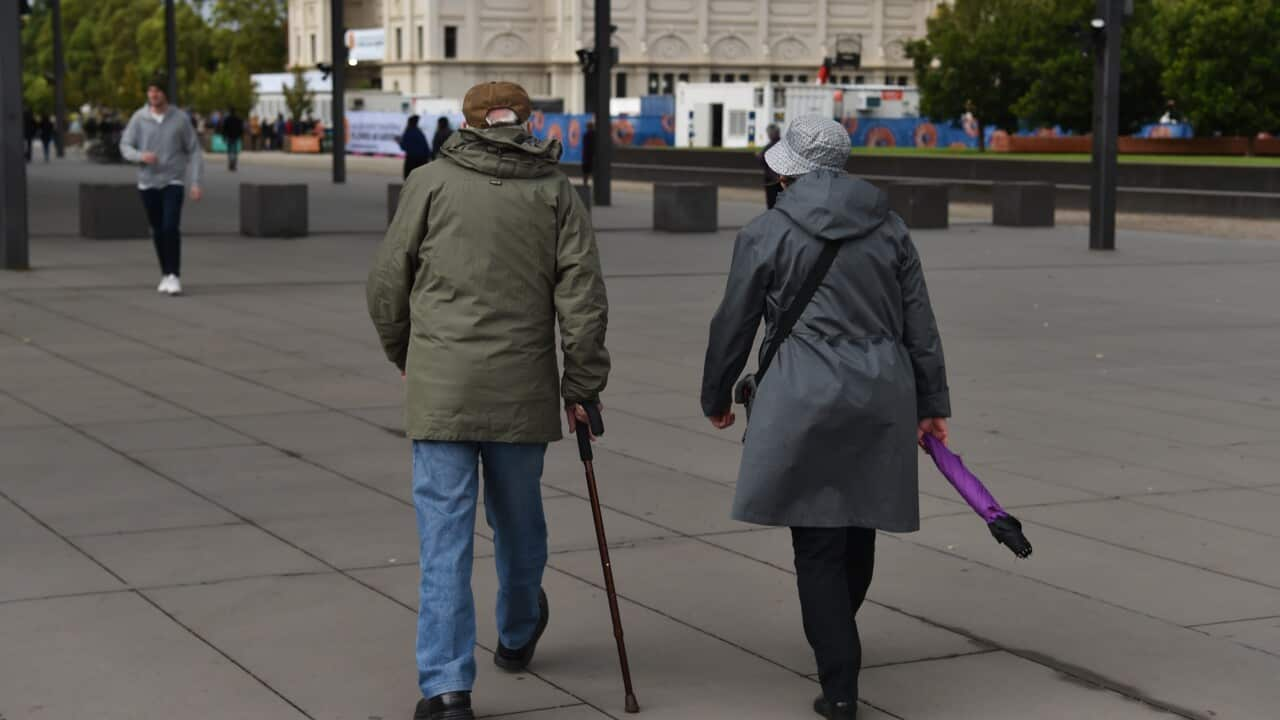Listen to Australian and world news, and follow trending topics with SBS News Podcasts.
TRANSCRIPT:
Parliament has returned to Canberra, and Prime Minister Anthony Albanese has already indicated that housing is among the issues set to dominate the fortnight.
"We're absolutely determined to do everything we can to fast track home ownership, fast track improved number of rentals, fast track social ownership of homes as well. We want to make a difference as we target our 1.2 million homes objective with our $43 billion dollar home for Australia plan."
The Prime Minister says that the government will fast-track the expansion of an initiative aimed at making the property market more accessible: the First Home Buyer Guarantee.
The Guarantee allows first-home buyers to buy a property with a smaller 5 per cent deposit, compared to the usual 20 per cent.
Under the scheme, a first home buyer looking to purchase a property at the national median price of $844,000 will only need a $42,200 deposit.
The government then acts as guarantor, contributing the remaining 15 per cent and allowing buyers to avoid taking out costly lender's mortgage insurance.
Housing minister Clare O'Neil says it's about making the property market more equitable.
"This policy is going to have a hugely meaningful impact for the people who choose to use it. What we know is that it is incredibly challenging for this younger generation to get into home ownership. We are seeing young people having to save 8 or 9 years to build a deposit. With the 5 per cent deposit program that our government is expanding, we see that timeline brought back to two or three years."
Previously, the scheme had an annual cap on the number of people accessing it, as well as income caps on eligible participants and price caps on eligible properties.
But starting October 1st, there will be no income limit, no uptake limit, and an increased price cap on properties to better align with the national average.
An estimated 70,000 people are expected to use the expanded scheme in its first year of access, 20,000 more than the current yearly cap.
The Opposition has already criticised the scheme.
Nationals Senator Barnaby Joyce has told Seven's Sunrise that it will drive up property prices.
"The Housing Australia Future Fund has been, I mean huge promises, disastrous delivery, is of course just put out the price of houses people are going to be able to borrow more money so they're going to go to the auction and say 'hey guess what? We can - we can bid for more because we've got access to more money,' The price of houses just goes up. You've got to deal with the other issues and the Labor Party are not."
Opposition housing spokesperson Andrew Bragg meanwhile is critical of the scheme being open to all first-home buyers without any income testing.
"So I think it is perverse and bizarre that children of billionaires will now have access to a government insurance scheme. Effectively, a welfare system is now going to be opened up to the children of billionaires. So it was once a targeted scheme, and now it's a universal scheme without any means testing, so that I think that is quite bizarre."
The Housing Industry Association says the move is welcome and an important step in opening the doors to more people entering the market.
The Property Council of Australia has also welcomed the scheme's expansion but says it should be regularly reviewed to ensure key markets don't overheat.
And Master Builders Australia chief executive Denita Dawn says while more access is a good thing, it must be coupled with more supply.
"We now ask the focus of the government to be on people. We simply do not have enough people to build at the moment, that's our next big issue. What are we doing around migration to make things easier for migrants to have their skills recognised in this country, it takes too long, it's too expensive. We don't have tradies as the number one skilled priority, even though they would meet the 130,000 or more threshold that needs to be changed. What are we also doing around encouraging more people into trades that should now be the next focus of the government when it comes to housing issues."
The scheme's earlier start date follows the government announcing a pause on upcoming changes to the National Construction Code [[NCC]] to allow for quicker approvals to new housing projects.
Following the economic roundtable in Canberra last week, regulatory barriers described by some as burdensome were singled out as a key barrier to efficient home building.
The N-C-C will now be put on hold until 2029 - though the freeze excludes essential safety and quality changes and maintains residential standards adopted in 2022, including seven-star energy efficiency.
Andrew Bragg says the government needs more coherence in its housing policy.
"Well, if you're confused about the government's housing agenda, then that makes a lot of Australians, because the government says that they want to cut red tape, but then they announced today they want to become the nation's largest mortgage insurer in addition to being a massive property developer. So either you want to cut red tape and make it easy for builders and traders and developers, or you want to have a big government solution to everything, which is what we've seen today with this expansion of the home guaranteed scheme."
Opposition leader Sussan Ley also hit out at the Prime Minister, saying the government has adopted policies she says were initially proposed by the coalition.
The PM hit right back.
"Very bold to say that coalition policies work when it comes to housing. Because, for most of the time they were in office, they didn't even bother to have a housing minister."
